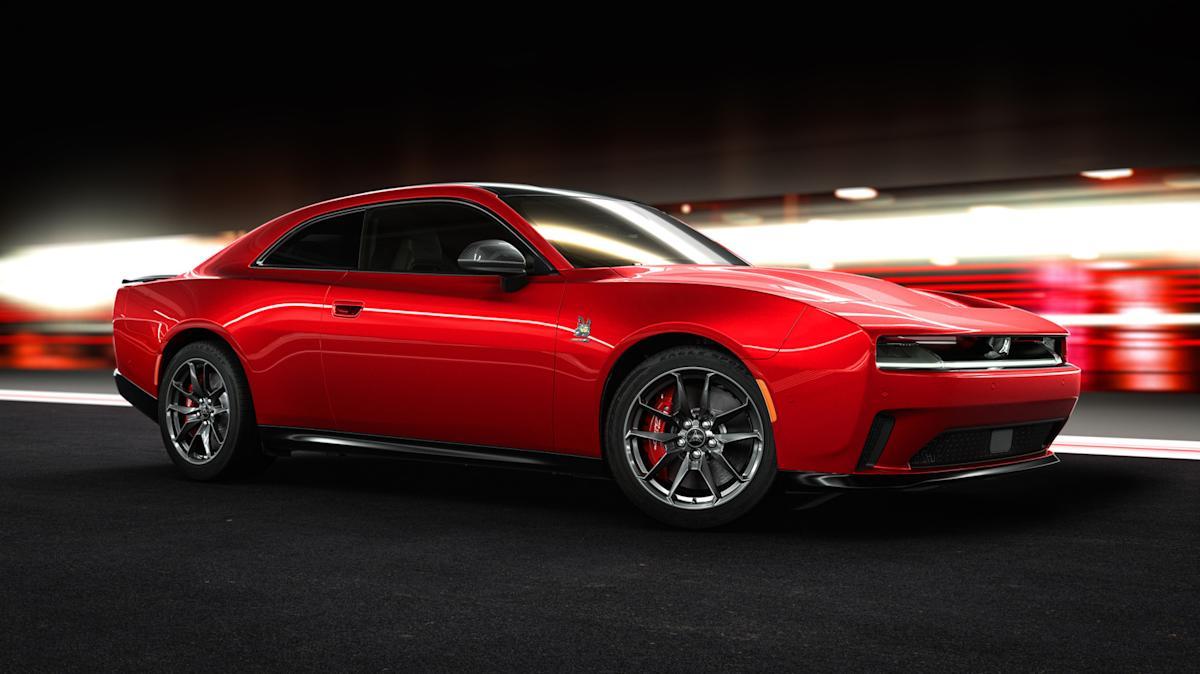Edmunds' Long-Term Dodge Charger EV Accelerated By Itself, Which Isn't Good

Edmunds' Long-Term Dodge Charger EV Accelerated By Itself, Which Isn't Good
Earlier this year, Edmunds spent almost $86,000 to add an all-electric "Redeye" red Dodge Charger Daytona to its long-term test fleet. Just as a reminder, many consumer evaluation sites like Edmunds maintain long-term fleets. The idea is to understand the actual ownership experience, rather than simply driving the vehicle around for a week and creating a review.
The Charger Daytona is a big deal for Dodge, as it proposes to translate the uniquely internal-combustion legacy of this storied muscle car to the new age of electrification. Unfortunately, Edmunds' testers have reported a major issue: their car accelerated when it wasn't supposed to.
They don't know why, and this isn't good. Evidently, the Charger started to throw some warning lights, lost regenerative braking, and then began to increase speed while the driver wasn't stomping on the accelerator. Luckily, the Charger didn't tap into its full 670 horsepower (Edmunds went for the Scat Pack performance package), sending the driver and his son in the passenger seat back to the future.
Read more: The 2025 Land District Might Kick Off A New-Era Of American Moto
It's The Software (Probably)
I emailed Dodge for comment and will update when I hear back, but I have a pretty good idea of what's going on here. For the record – and Edmunds also noted this – owners in Dodge forums have claimed to experience this glitch, so Dodge knows about it. My following analysis is speculative, but based on my time at an electric vehicle startup.
Cars have been heavily computerized for decades, but EVs are a completely different ball game. The key distinction is that internal-combustion technologies were developed and largely perfected during the analog era, with various computer systems bolted on later, as the electronic architecture of vehicles evolved. Modern EVs, by contrast, have always been digital, with computer modules controlling just about everything. It's probably a software issue, because the whole thing is run by software. As our president so eloquently put it while checking out a Tesla Model S back in March, "everything's computer."
Back in the day, if something glitched on your old gas-burning car, you went to the dealership and they plugged in some proprietary diagnostics to fix it. But in 2025, EVs are connected 24/7, so chances are pretty good that Dodge has accessed the vehicle logs for Edmunds' Charger and is remotely evaluating what went wrong.
Reset But Don't Forget
The Dodge Charger EV - Dodge
Edmunds performed a basic reset to regain full control of their Charger (not a full reboot, however). The problem hasn't recurred. But if you visit the National Highway Traffic Safety Administration's site and review the page on the Dodge Charger EV, you'll find that although there have been no complaints, nor any investigations or recalls announced, there have been 25 manufacturer communications, mainly regarding the electrical system.
The root cause here is likely some sort of software conflict, or an electrical system miscommunication with a critical drivetrain component and triggering an error or series of errors. The startup I worked for wrestled with these problems, and we were hardly alone: despite copious presale testing, required by regulators for certification, it seems that almost every EV endures software bugs. Even Tesla, pioneers of over-the-air updates to solve problems, had a gaggle of glitches and recalls with the Cybertruck.
The good news is that the fix is often quite straightforward, a matter of reprogramming one supplier's software to get along better with another's. If the fix isn't at the level of a simple software update, then the automaker will typically advise NHTSA and initiate a recall. Not that I'm making excuses for Dodge; unintended acceleration is scary! But we are only just entering the era of the "software defined vehicle" and are at the early stages of learning what goes wrong with EVs. And because they are so mechanically simple, it's often the digital code that is causing trouble.
Want more like this? Join the Jalopnik newsletter to get the latest auto news sent straight to your inbox...
Read the original article on Jalopnik.
- News
- Mysticism
- Horoscope
- Bath & Body
- Soap Making
- Books
- Art
- Causes
- Crafts
- Dance
- Drinks
- Film
- Fitness
- Food
- Juegos
- Gardening
- Health
- Home
- Literature
- Music
- Networking
- Other
- Party
- Religion
- Shopping
- Sports
- Theater
- Wellness




